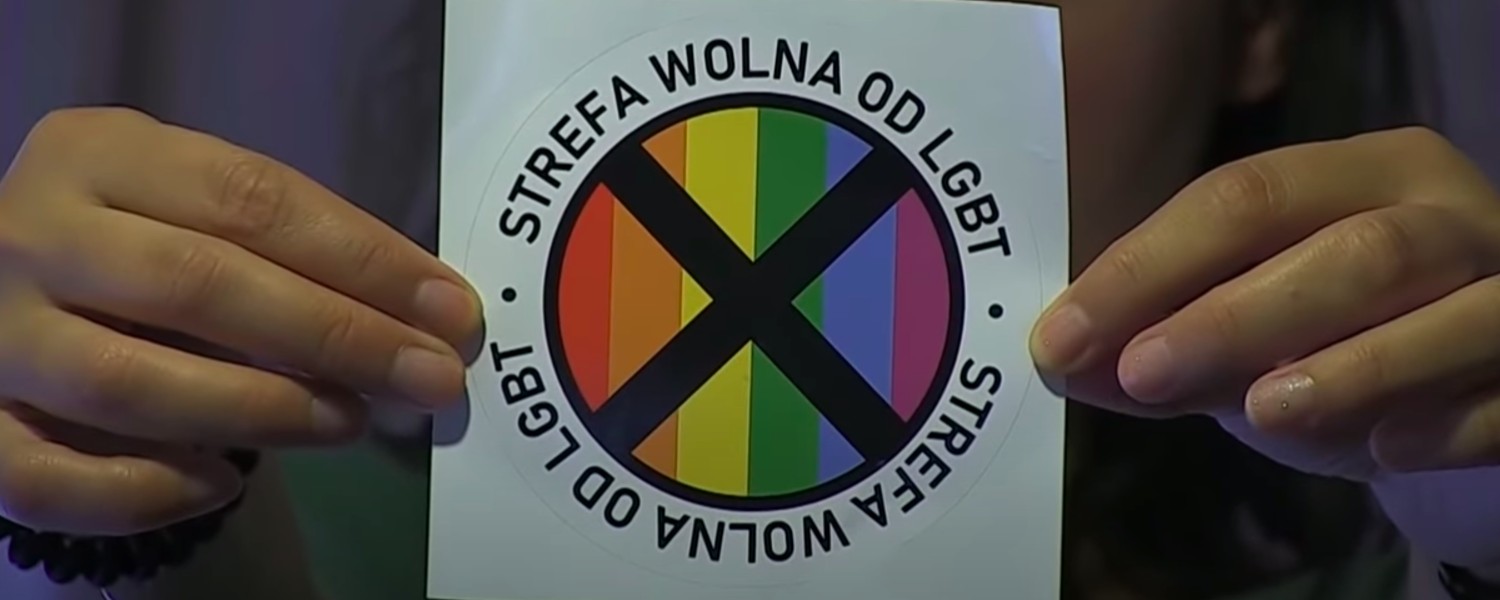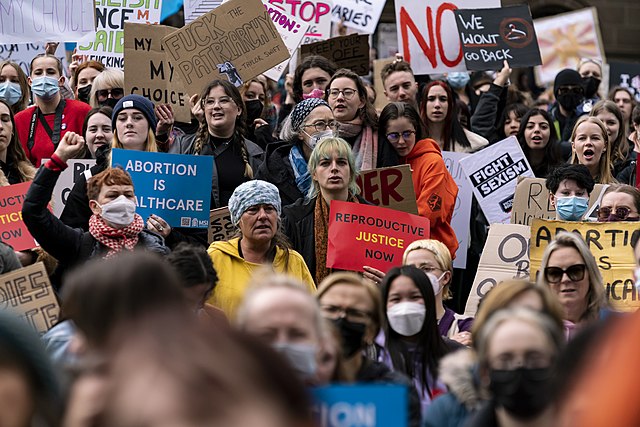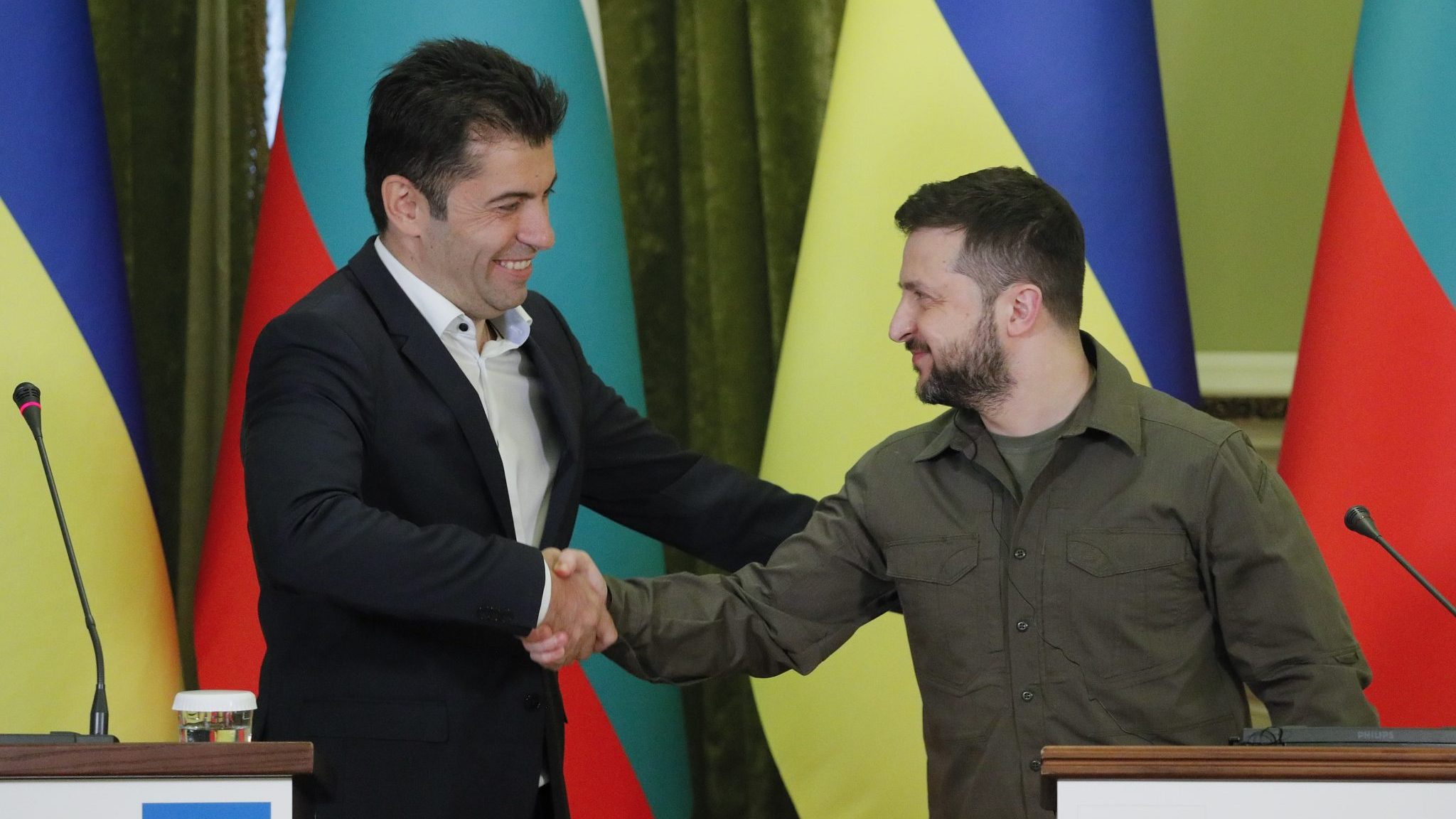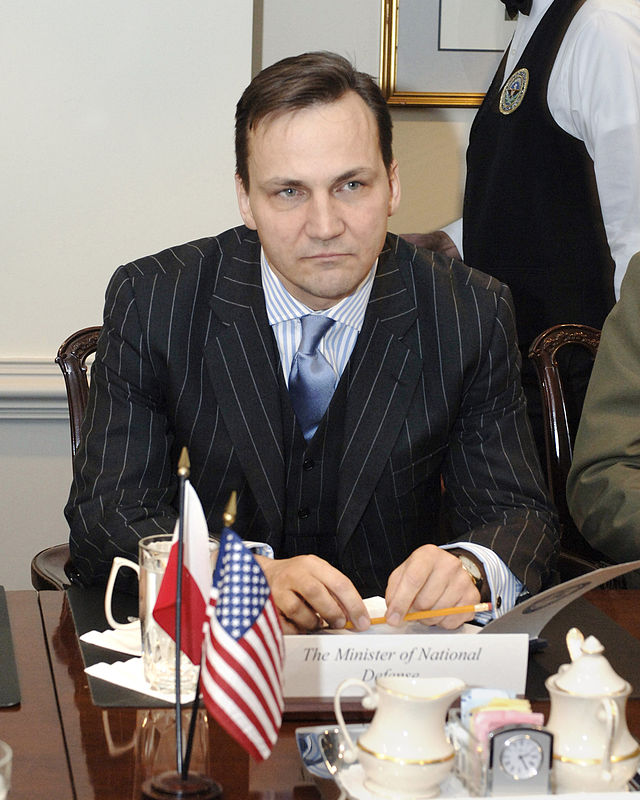This article was published on 13 August 2020 at BIRN and is republished with the approval of the author Claudia Ciobanu.
“I arrived at the Copernicus monument at around nine in the evening, and I was just speaking to people when suddenly a group of policemen appeared. One of them – maybe the commander – pointed to me and then two came and took me by the arm,” recounted 52-year-old Malgorzata Rawinska, one of the 48 people arrested Friday night in Warsaw during a protest in solidarity with an LGBT activist who has been jailed for two months.
“I was flabbergasted so I didn’t defend myself. I was asking on what basis they are arresting me, but they didn’t reply. Then people around started shouting I was a journalist, so the police got confused,” she said.
Rawinska hosts an online radio show and, at the time of her arrest, she was going around interviewing people about the events surrounding LGBT activist Margot S’s arrest earlier on Friday. But she’s an amateur journalist, so she couldn’t show a badge to prevent the police from detaining her.
Like the other 47 arrested on Friday night, she was released over the weekend after spending the night in jail, but is now facing up to three years in prison for, in the words of the charge sheet, “taking part in a mob, with the knowledge that its participants will join forces to violently attack a person or property.”
“I have been an activist for equality and human rights for over 30 years, but never in my life have I been as afraid as I am now,” Rawinska told BIRN following her release from prison. “What happened on Friday is a kind of greenlight to shout at us and attack us.”
“My face was on TV, so I am afraid – to go out with the dogs, to go shopping. But I will continue to be active, nevertheless. You cannot be silent; you cannot be indifferent,” she added.
The “Polish Stonewall”
Rawinska’s determination to fight for her rights is echoed by other activists, who say that Friday’s events have revealed a “new rainbow solidarity” and anti-LGBT actions by the government and its allies are likely to receive a stronger pushback from now on. “I think it’s in the Polish genes that when something bad happens, we flex our muscles and fight it off. We saw it with the Solidarity movement or martial law – the more the government pressures us, the more we will fight back,” Bart Staszewski, a prominent LGBT activist who was part of the protests on Friday, told BIRN.
The events of Friday night follow a two-year period in which the governing Law and Justice Party (PiS) has campaigned in local, European, parliamentary and presidential elections on what has amounted to an anti-LGBT platform. On the electoral trail this summer, for example, President Andrzej Duda said LGBT did not stand for people, but for an ideology that was “more destructive” than communism.
While many are referring to Friday’s arrests as the “Polish Stonewall”, Staszewski argues a whole series of events that have taken place over the last two years actually make up that label, including the declaration of “zones free of LGBT ideology” in regions covering a third of the country’s territory, as well as the violent attacks against the Bialystok equality parade last year.
“The government has chosen us as a target and it is using a big machine, including public institutions and the media, to attack us,” said Staszewski. “Even if we are afraid, we will continue to stand up for Margot and everyone else – it’s one for all and all for one.”
Kuba Gawron, another LGBT activist known for being one of the creators of a map that exposed the “LGBT-free zones” in Poland, told BIRN that Friday’s events were an example of “the system responding to civil disobedience by abusing the penal and petty offences codes.” In other cases, he said, civil lawsuits were being used to intimidate activists. “These methods could be applied full scale in the rest of society,” he warned.
Staszewski called Friday’s mass arrests “a turning point for the entire Poland”, because the issue of respecting the rights of LGBT people will determine the future of the country, “whether it goes in the direction of Europe, or rather follows in the footsteps of Russia or Hungary.”
Disproportionate response
The events that have taken place in Poland over the past few months appear to show a hardening of the government line over the issue.
In June, Margot S was one of several activists to take part in an action in June to block a van plastered with homophobic language, which involved damaging the vehicle owned by the Pro-Right to Life Foundation and scuffles with the driver. The prosecution, which in Poland is headed by hardline Justice Minister Zbigniew Ziobro, pressed vandalism and assault charges, which carry a sentence of up to five years, and demanded a two-month temporary arrest, which a judge granted on appeal.
On Friday, Margot’s friends and allies showed up to support her upon arrest, and some ended up involved in an act of civil disobedience in protest at the severity of the sentence: two people got up on the police car meant to take Margot to the station, while others sat on the ground blocking its route and shouted angry slogans.
The police said the mass arrests were necessary to carry out the court order to take Margot into detention. But testimonies from the detained and their lawyers, as well as independent observers, point to a disproportionate response by the police, who arrested peaceful protesters and even random passers-by while acting violently – an approach some argue can be explained by the general anti-LGBT climate building up in Poland over the last years.
“This was mass detention of people who were mostly passive protesters. The cops crowded up Warsaw’s police stations with almost 50 people under irrational charges,” Emilia Barabasz, a lawyer for two of the detained individuals, told BIRN. “Even if there was no direct political influence on the police, it could be that this is how the police in Poland understands its obligations nowadays, which they wanted to perform well.”
In its public statement on the events, the Warsaw police said it arrested, “48 of the most aggressive” people who were involved in a collective attack on the police van carrying Margot. The police also released a video entitled “Through the eyes of the police”, as a means to justify its actions. The video shows two protesters lying on the police car while others try to form a chain around it, and a separate scene of an activist shouting abuse at the police. There is no image that could be construed as protesters actually attacking the police.
Several of the arrested, like Malgorzata Rawinska, were not involved – or even present – when this scene took place. “I was just returning home after being in the Copernicus area to check out what happened, when the police grabbed me by the shoulders and arrested me,” 19-year-old Aleksander Wentykier told BIRN. “They did not tell me why they are arresting me. I think they may have picked me up because I was wearing a rainbow mask.”
Barabasz, the lawyer, told a similar story about one of her clients, an Italian residing in Poland, who was seemingly picked up while, according to his testimony, simply walking by and checking out why there was a crowd. The man doesn’t speak Polish, so he struggled to understand what was going on, while his protests in English that he had done nothing wrong were ignored. In addition to the charges faced by everyone else, the Italian is also accused of attacking a policeman, a claim he vehemently denies.
A report published on Saturday by the Polish Ombudsman’s office, based on talks with 33 of the detained while they were imprisoned, says that, “among the arrested, there are people who did not take active part in the gatherings on Krakowskie Przedmiescie or Wilcza street, but were watching the incident. Some of them had rainbow emblems – bags, pins, flags. Among the detained there were also random people who in a certain moment were, for example, coming out of a shop with bags.”
Most of those arrested, including those interviewed by BIRN, intend to file legal complaints about their arrests.
The police’s harsher tactics against LGBT activists – or those mistaken for LGBT activists – have been witnessed in other instances lately, as activists continue to hang rainbow flags and block the van with homophobic slogans, despite people already facing criminal charges for carrying out similar acts.
On Monday in Szczecin, during one of the many solidarity actions taking place across Poland in connection with the Warsaw arrests, an activist was written up for holding a banner saying “Jesus would walk with us”, which the police allege “offends religious feelings’, a crime in this country. And in Krakow on Saturday, the police wrote up six people because one of them hung a rainbow flag on the statue of the Wawel dragon (Margot and two other activists face charges for hanging rainbow flags on various Warsaw monuments).
Speaking to the daily Gazeta Wyborcza, a spokeswoman for the Krakow police suggested the individual could be charged with “putting an object in the wrong place” (another spokesman later said that the charge, if any, would be for “disturbing public order”). The initial statement caused widespread hilarity, but was also an indication that, like in other cities, the police are clamping down on LGBT people without a proper legal basis – which they then struggle to justify post factum.
On Tuesday in Warsaw, nine policemen were sent to check out the grounds and collect evidence when a rainbow flag was hung on the statue of writer Boleslaw Prus. On Wednesday, the police intervened to remove people blocking the route of the same van for which Margot was arrested.
On Friday night in Warsaw, many of the detained were initially given no reason for their arrest, to later hear at the police stations that they would be charged with taking part in an illegal gathering during the COVID-19 pandemic, to eventually see more serious criminal charges laid against them.
Trans people singled out
According to the Ombudsman’s report, some of the detained complained of police brutality, including being beaten and sustaining injuries. Some were interrogated without a lawyer present, even in cases when the lawyer was available. Many allege they were refused access to medical treatment or even water.
Statements made by people to BIRN seem to indicate a difference in treatment depending on the place of detention, with one interviewee even saying some police members seemed “embarrassed” to be having to make such arrests.
Yet many of the arrested, especially trans people, claim to have been subjected to degrading treatment while in custody. Many of the detained were stripped naked for body checks, despite no indication they were hiding dangerous items or illegal substances. Emilia Barabasz, the lawyer, said she was surprised to hear that while her Italian male client was not subjected to a strip search, her other client, a trans woman, was. The two arrested people interviewed by BIRN for this article, both non-heteronormative, were also subjected to such a search.
Barabasz’s trans client – who did not wish to speak to the media directly – alleged further violence from the police. According to the client’s account to her lawyer, at the first station male policemen attempted to conduct a body search despite her identifying as female and requesting a policewoman. The policemen allegedly mocked her and insisted on conducting the body check until she started screaming. At the next police station, the situation got more severe: the woman was ordered to put on trousers instead of the skirt she was wearing, with the police eventually pushing her to the ground and forcing her to change garments. On Monday, during a medical check, the woman still had bruises which could have resulted from this incident, her lawyer said.
The Warsaw police did not reply to a BIRN request for comment about the treatment of this prisoner by the time of publication.
Aleksander Wentykier, who is a trans man, was similarly treated as a woman throughout the formal proceedings – his body search was conducted by a female officer and he could not use the toilet until a policewoman arrived from another station to accompany him.
“When all this ended and I got on the train to go back home, I was afraid to put back on my rainbow mask – I was on public transport so I had to wear one, but this was the only one I had and I was thinking, ‘should I get another one, what other symbols I might have that might cause a violent reaction’,” Wentykier said.
While saying he is scared for his safety, Wentykier underlined one major positive development in the whole series of events since Friday – the solidarity. He said he cried when he saw the crowds gathered outside police stations in solidarity: as soon as word got out about the arrests, people gathered outside stations to support those inside, where, in some cases like at the Wilcza station in central Warsaw, they were arrested there as well.
LGBT, anarchist and human rights groups immediately mobilised to share information about the whereabouts of the arrested, and tens of lawyers came to the stations and offered pro-bono help. Several parliamentarians were present throughout Friday night at the police stations to ensure that the rights of the detained were respected. Solidarity rallies were organised the following days at many locations across Poland.
“We are all in this together, my dears, parliamentarian or not, heterosexual or not, LGBT or not, young or old, from Wroclaw or Warsaw, from big towns or small ones. All of us,” said the Lewica MP Agnieszka Dziemianowicz-Bak – one of those who spent Friday night at a Warsaw police station – during a solidarity rally in Wroclaw on Monday. “When the law is violent, resistance is mandatory.”
Photo: Stickers “LGBT-free zone” have ben appearing in various places in Poland (source: YouTube)
The Barricade is an independent platform, which is supported financially by its readers. Become one of them! If you have enjoyed reading this article, support The Barricade’s existence! We need you! See how you can help – here!











